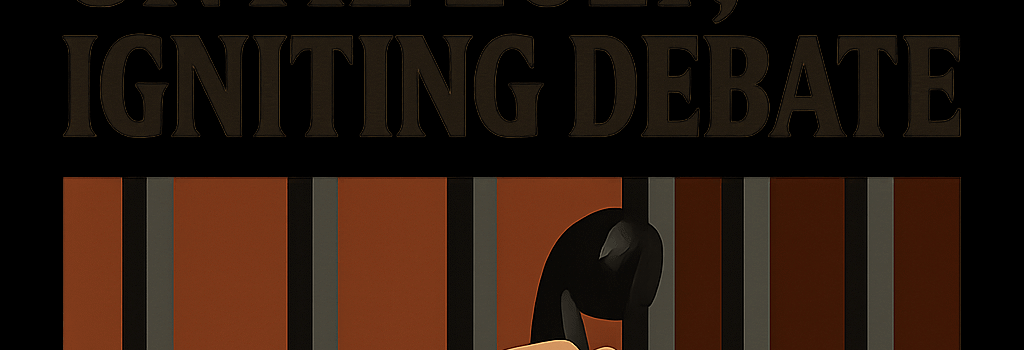FCC Delays Prison Phone Price Caps Until 2027, Igniting Debate

Federal Communications Commission (FCC) Chairman Brendan Carr announced on June 30, 2025, a two-year waiver of the rate caps for Incarcerated People’s Communication Services (IPCS), effectively maintaining today’s high per-minute prices until April 1, 2027. The decision halts implementation of the Martha Wright-Reed Act mandates and the FCC’s own 2024 IPCS Order, which would have cut maximum rates for a 15-minute call from as much as $11.35 to $0.90 in large facilities.
Background: From 2024 Caps to 2025 Waiver
In July 2024, under a Democratic majority, the FCC voted to impose strict caps on prison phone and video calls. The rule closed intrastate loopholes, capped per-minute voice calls at $0.06–$0.09, and established per-minute video rates. It set implementation deadlines for large facilities (Jan. 1, 2025) and small jails (Apr. 1, 2025), with extensions to 2026 when contracts required renegotiation.
Less than a year later, Chairman Carr granted a blanket waiver, citing “negative, unintended consequences” and asserting that rate caps are “too low to cover required safety measures.” The waiver invokes Section 1.3 of FCC rules, allowing deviation when strict compliance is inconsistent with the public interest.
Technical Challenges in IPCS Implementation
Correctional facilities rely on a hybrid telecom architecture combining legacy PSTN trunks, VoIP gateways, and proprietary session controllers. Providers like Securus Technologies and Global Tel Link (GTL) report:
- Unanticipated latency and jitter with per-minute billing on VoIP platforms due to packet retry and buffering mechanisms.
- Complex integrations with jail security systems (e.g., biometric authentication, cell-block locks) requiring license management, real-time monitoring, and encrypted tunnels.
- High capital expenditure (CapEx) for new billing modules that support granular metering of voice and video sessions, often in the range of $1–3 million per statewide deployment.
According to an FCC staff technical analysis released May 2025, nearly 40% of state departments had contracts expiring before the original deadline, forcing them to choose between costly renegotiation or suspending service.
Economic and Policy Implications
Securus Technologies testified that “reducing per-minute rates by 80% would collapse our revenue model, jeopardizing site commissions that fund facility security staff.” These commissions—ranging from 10% to 60% of call revenue—serve as a financial incentive for correctional operators.
However, public-interest advocates, including the Prison Policy Initiative and the United Church of Christ Media Justice Ministry, argue that current rates generate $1.2 billion in excessive charges annually, creating a system where low-income families bear the cost of maintaining prisons. Commissioner Anna Gomez said,
“This blanket waiver undermines both the statutory intent of the Martha Wright-Reed Act and the will of Congress. We cannot allow antiquated payphone economics to persist.”
Security and Compliance Considerations
Beyond economics, IPCS platforms must comply with:
- NCIC/NCIS Data Retention: Retaining call logs and voice records for up to 90 days for law enforcement audit.
- End-to-End Encryption: Encrypting VoIP media streams (SRTP/TLS) while allowing selective decryption for monitored calls.
- Real-Time Monitoring: Embedding voice analytics for keyword spotting and contraband coordination detection, which adds CPU/GPU overhead and licensing fees.
Carr’s office highlighted that “facilities lack time to test and certify new encryption modules,” potentially exposing public safety to risk.
New Developments and Future Outlook
In April 2025, the FCC launched a new Notice of Proposed Rulemaking (NPRM) to explore alternative funding models for IPCS, including:
- A voucher-based system where state budgets subsidize calls directly.
- A modular billing architecture published under an open-source license to reduce vendor lock-in.
Additionally, several state legislatures, including California and New York, have introduced bills to cap prison call rates at $0.05 per minute, aiming to circumvent federal delays.
Expert Analysis
Dr. Marisol Torres, a telecommunications policy professor at Georgetown University, notes:
“The FCC waiver is a stopgap that trades off short-term system stability against the long-term goal of reducing the collateral costs of incarceration. The technical debt incurred by legacy IPCS platforms will only grow.”
Meanwhile, TechDLaw analyst Eric Nguyen warns of pending litigation:
“Commissioner Gomez’s vow to challenge in court suggests an expedited judicial review. If the waiver is struck down, the FCC must implement caps mid-contract, creating a compliance tsunami.”
Conclusion
The FCC’s decision to delay IPCS price caps until 2027 underscores the tension between regulatory reform, technical feasibility, and financial realities. Stakeholders on both sides are gearing up for rulemaking comments and possible litigation, charting a complex path forward for prison communications in the digital era.